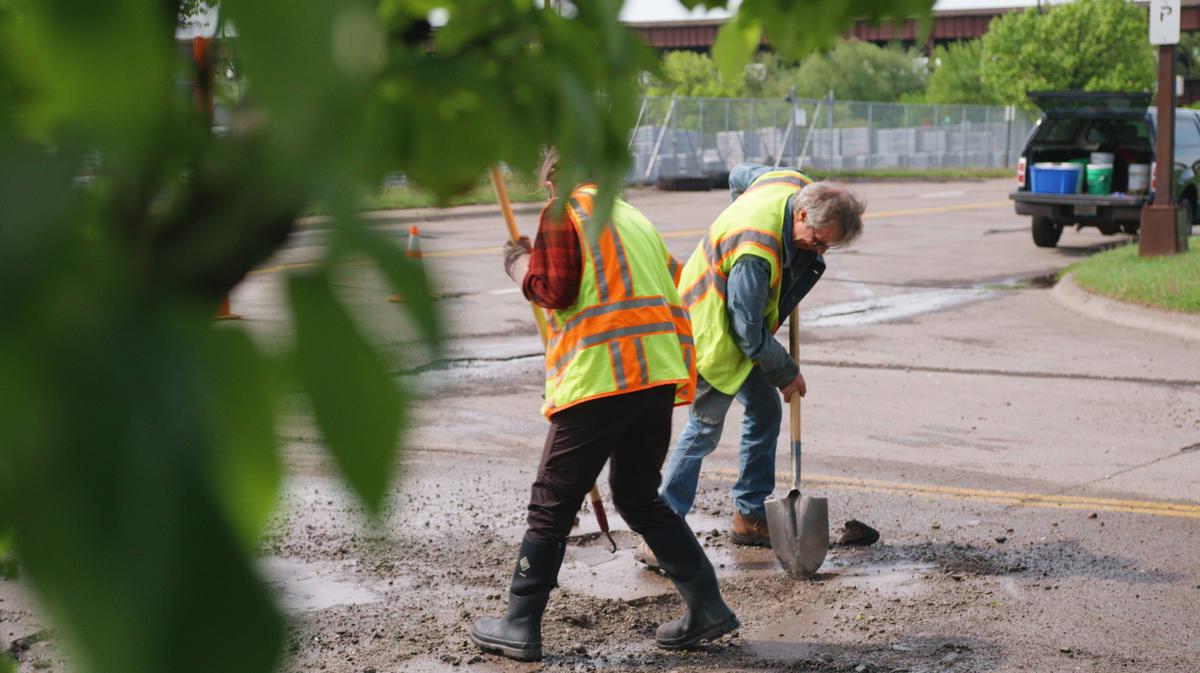Turning waste products into problem-solving materials is one of the hallmarks of UMD’s Natural Resource Research Institute. Scientists at NRRI have developed and patented a pothole patch made from taconite waste. But, of course, patching a pothole isn’t terribly hard; creating a patch that will last – especially in Minnesota – is the real challenge.
NRRI’s product is designed to harden into a durable patch in about 10-20 minutes, depending on weather conditions. In order to evaluate its performance, NRRI and Advanced Road Patch LLC, the small Iron Range company that purchased the license for the patching system, needed some pothole-pitted roads to test it on. The City of Duluth, known to have more than its fair share of potholes, offered up sections of its roadways where the results could be evaluated.
NRRI researchers will be able to make changes to the formula, once they see how it responds to real-world conditions. Patches that last longer would save cities hundreds of thousands of dollars each year. Fewer potholes would make countless motorists happier. It's research for sustainable roads.
Discover what UMD research is doing for you:
